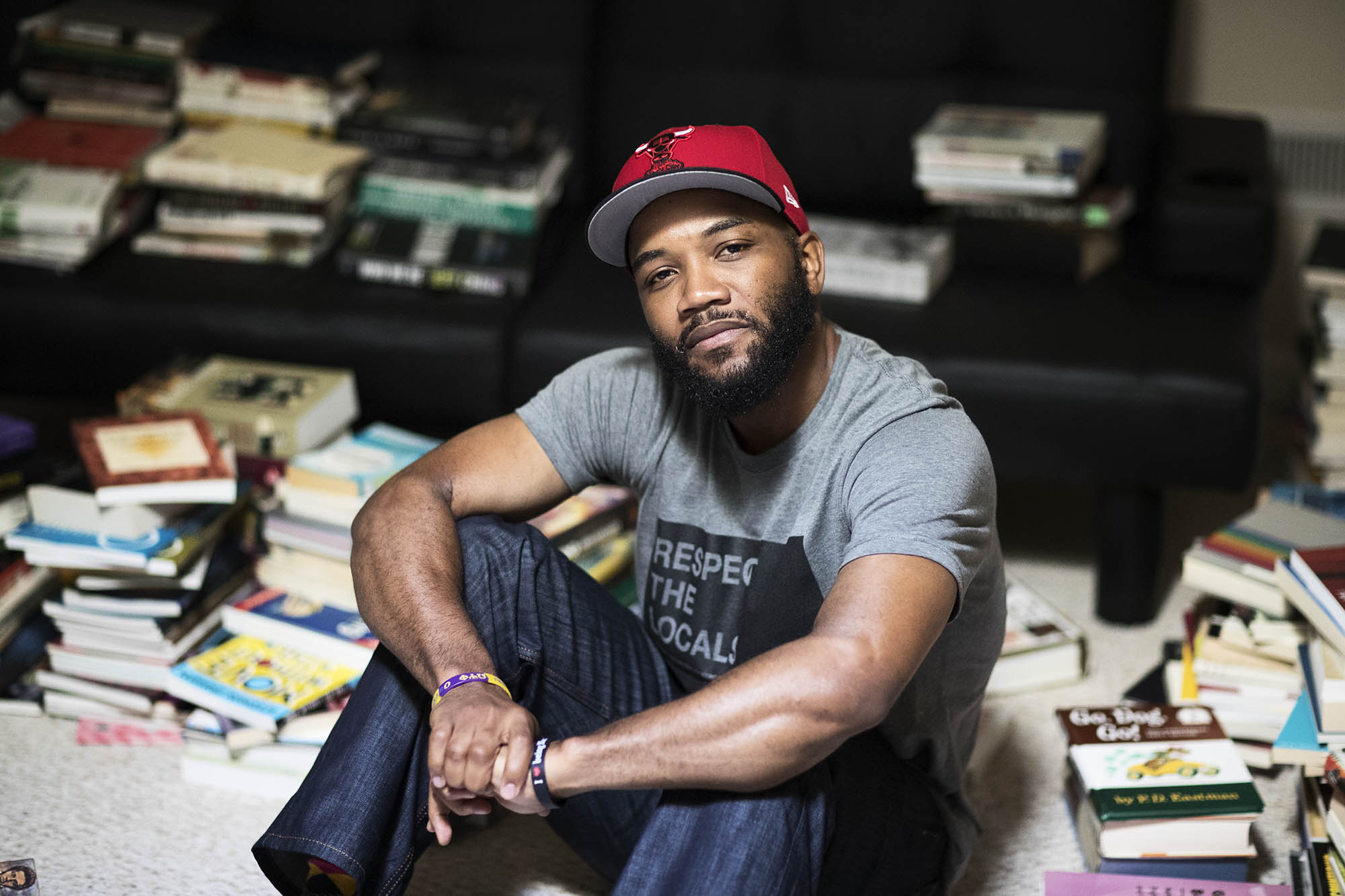In addition to releasing the first-ever peer reviewed rap album, University of Virginia professor of hip-hop A.D. Carson has seen another example of his work climb the music charts this year.
Carson, who joined the faculty of the McIntire Department of Music in 2017, recently posted his second top-10 hit. “Ohana,” a song he wrote with Hawaiian reggae artist Akoni – Carson also performs on the single – reached No. 6 on the iTunes reggae downloads list on Dec. 2.
This is the second time Carson has charted in the last six months. In July, a comedy rap album he performed on, “Doors,” by Handsome Naked, reached No. 2 on iTunes and was the No. 10 comedy album in the Billboard rankings.
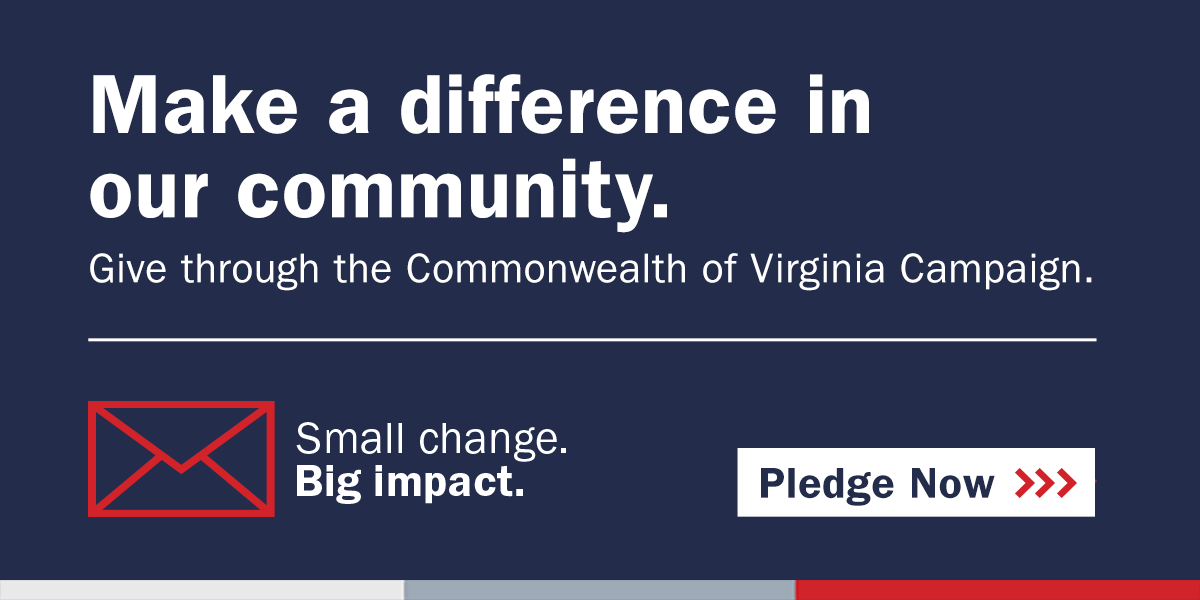
This summer – three years after releasing an album as his Ph.D. dissertation – Carson released the first peer-reviewed rap album ever published by an academic press: “i used to love to dream” (University of Michigan Press), the third album in his “Sleepwalking” series. It explores Carson’s hometown, Decatur, Illinois, and its effect on him as his career has taken off and taken him further from where he grew up, including to Clemson University, where he earned his Ph.D., and now to Charlottesville and UVA, where he is the assistant professor of hip-hop and the global south in the McIntire Department of Music.
Media Studies Professor Tapped to Help Choose Peabody Award Winners
The University of Georgia has invited Aswin Punathambekar, associate professor of media studies, to serve on its 18-member Board of Jurors for the George Foster Peabody Awards, the oldest and most prestigious award for broadcasting and electronic media in the world.
The university’s Grady College of Journalism and Mass Communication administers the awards program. The board – comprising academics, media executives, writers, critics and journalists – annually reviews entries in television, radio and the web, across genre, platform and origin, selecting 30 winners. (The 2019 honorees can be found here.)
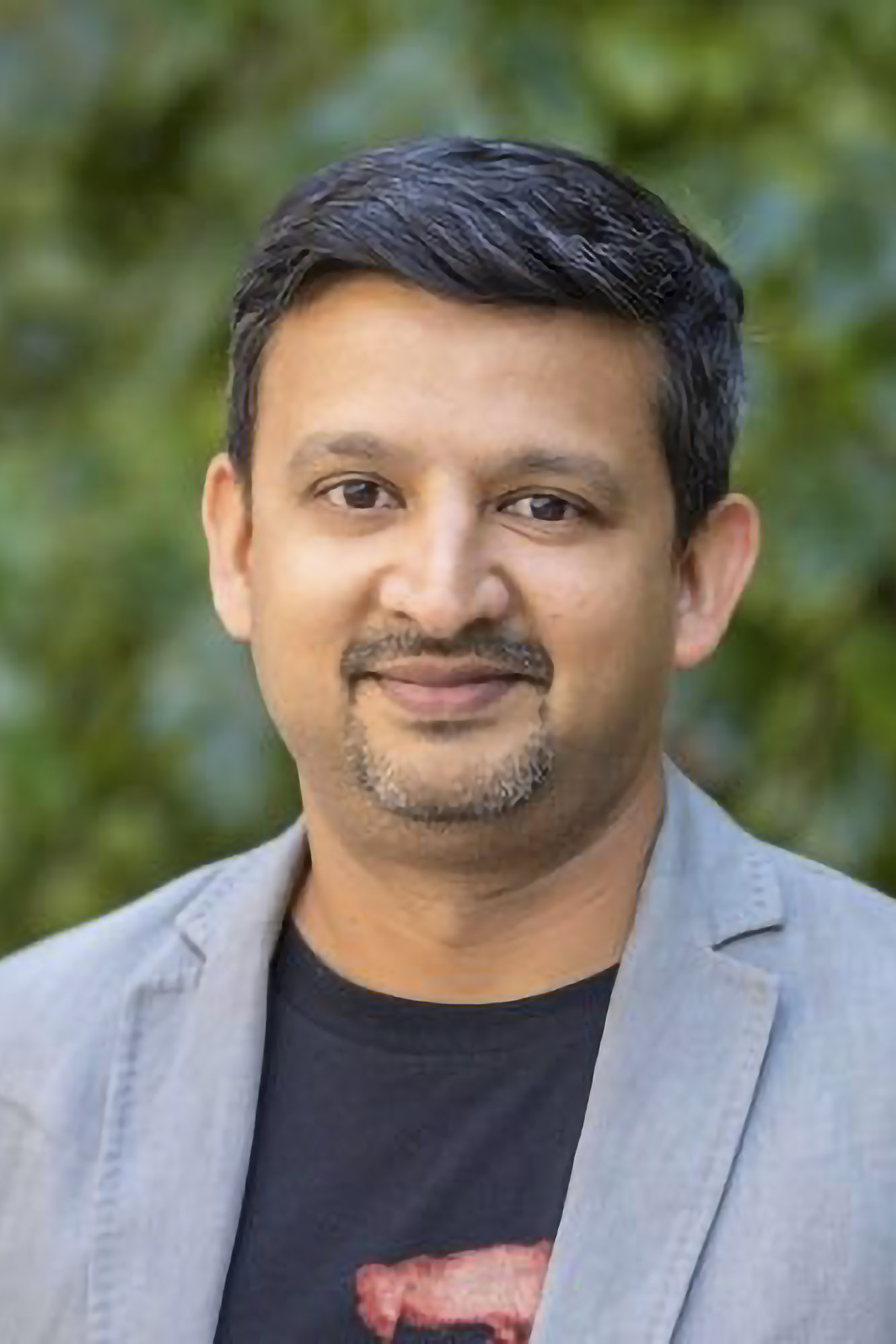
Aswin Punathambekar will help choose the next three years’ worth of winners of the University of Georgia’s George Foster Peabody Awards. (Contributed photo)
Punathambekar’s research and teaching focus on the impact that globalization and technological change have on the workings of media industries, formations of audiences and publics, and cultural identity and politics. He is the author of “From Bombay to Bollywood: The Making of a Global Media Industry” (NYU Press, 2013); co-author of “Media Industry Studies” (Polity, 2020); and co-editor of “Global Bollywood” (2008), “Television at Large in South Asia” (2013); and most recently, “Global Digital Cultures: Perspectives from South Asia” (2019). He is currently working on a co-written book, provisionally titled “The Digital Popular: Media, Culture, and Politics in Networked India.”
He edits the peer-reviewed journal Media, Culture and Society, and co-edits the Critical Cultural Communication book series for NYU Press.
At UVA, Punathambekar is working toward establishing a Global Media Studies Collaboratory, a cross-disciplinary hub for academics, students, media practitioners and others to explore the global impact of media and communication technologies, cultures and industries in a comparative and historical fashion.
Punathambekar will serve on the Board of Jurors for a three-year term. Winners of the 2020 Peabody Awards are scheduled to be announced in April.
Nursing Dean Earns Royal College of Surgeons in Ireland Fellowship
Pamela Cipriano, the sixth dean of UVA’s School of Nursing, has been named a Fellow Ad Eundem of the Royal College of Surgeons’ Faculty of Nursing and Midwifery in Dublin, Ireland.
The fellowship is bestowed upon individuals for their contributions and achievements in nursing, education and research. Cipriano – Sadie Heath Cabaniss Professor of Nursing, two-term president of the American Nurses Association and current first vice president of the International Council of Nurses – has long been a voice for nurses, an advocate for clinician well-being and resilience, a leading voice to normalize clinicians’ pursuit of mental health care and a champion of expanding nurses’ influence in health care policy.
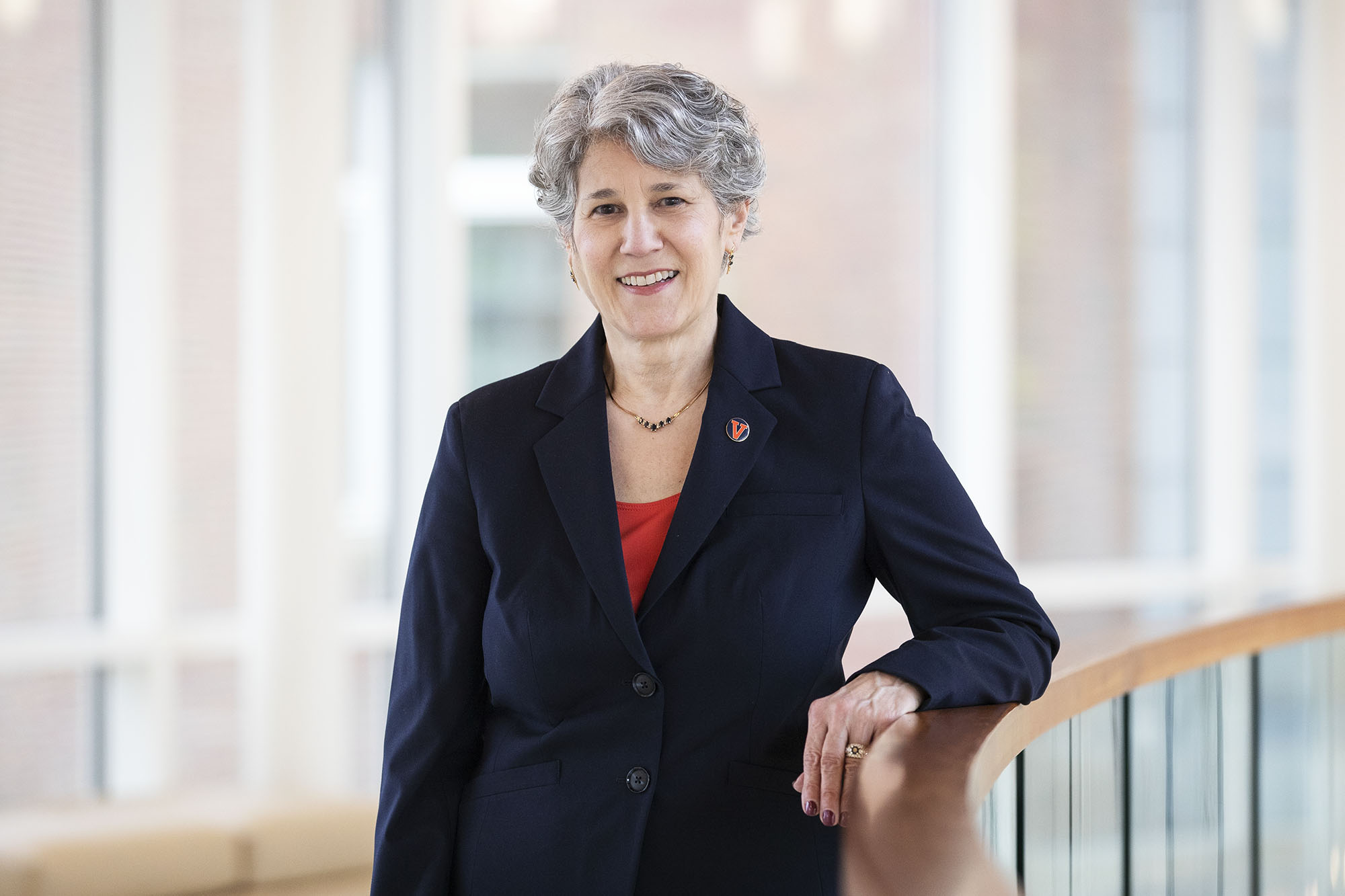
The Royal College of Surgeons’ Faculty of Nursing and Midwifery honored School of Nursing Dean Pamela Cipriano for her contributions and achievements in nursing, education and research. (Photo by Sanjay Suchak, University Communications)
Over her four-decade career, Cipriano has focused on improving nurses’ care by ensuring a healthy, safe and supportive work environment, and encouraging healthy behaviors to promote well-being. A leader in the National Academy of Medicine’s Action Collaborative on Clinician Well-Being and Resilience, she was instrumental in advancing strategies to reduce regulatory burden and revamp electronic documentation to relieve clinicians of unnecessary work. Since the pandemic, she helped the collaborative focus on mitigating the effects of COVID-19 on the mental health of all clinicians by reducing the stigma of seeking mental health care as primary prevention for burnout syndrome and depression.
Cipriano’s advocacy for the nursing profession is well-recognized. She serves as an adviser to Times Up Health Care, a group that aims to eliminate sexual harassment and gender inequality in health care; was a public-sector adviser in the U.S. delegation to the 69th World Health Assembly; and the inaugural editor of the ANA’s American Nurse Today. Named one of the “Top 100 Most Influential People in Healthcare” by Modern Healthcare for four consecutive years (2015-18), she earned a post among the “Top 25 Women in Healthcare,” was a Distinguished Nurse Scholar in residence at the Institute of Medicine, and earned the American Academy of Nursing’s Healthcare Leader Award in 2018.
The Royal College of Surgeons in Ireland’s Faculty of Nursing and Midwifery will induct Cipriano as a fellow at a virtual ceremony in mid-December led by the college’s dean, Michael Shannon.
STAT Honors ‘Wunderkind’ for Pioneering Work at UVA on Focused Ultrasound, Cancer
Health news site STAT named Natasha Sheybani as one of the next generation of scientific superstars for her work in focused ultrasound, cancer immunology and nuclear medicine while a UVA graduate student.
STAT made Sheybani, now a postdoctoral fellow at Stanford University, as one of its 2020 “Wunderkinds” as part of an annual competition celebrating promising young scientists. She is one of 26 award recipients this year.
“It is incredibly inspiring and motivating to be in the company of such remarkable early career scientists who share a desire to bear meaningful impact on patient lives through research,” she said. “I owe a great deal to the many mentors – most notably my Ph.D. adviser, Dr. Richard Price – who have championed my ambition to bring focused ultrasound and imaging to the forefront of immuno-oncology.”
At UVA, Sheybani played an instrumental role in pioneering research into the use of highly focused soundwaves as a potential treatment for breast cancer and brain tumors being conducted in Price’s biomedical engineering lab. UVA is seeking approval to launch a clinical trial based on her breast cancer work.
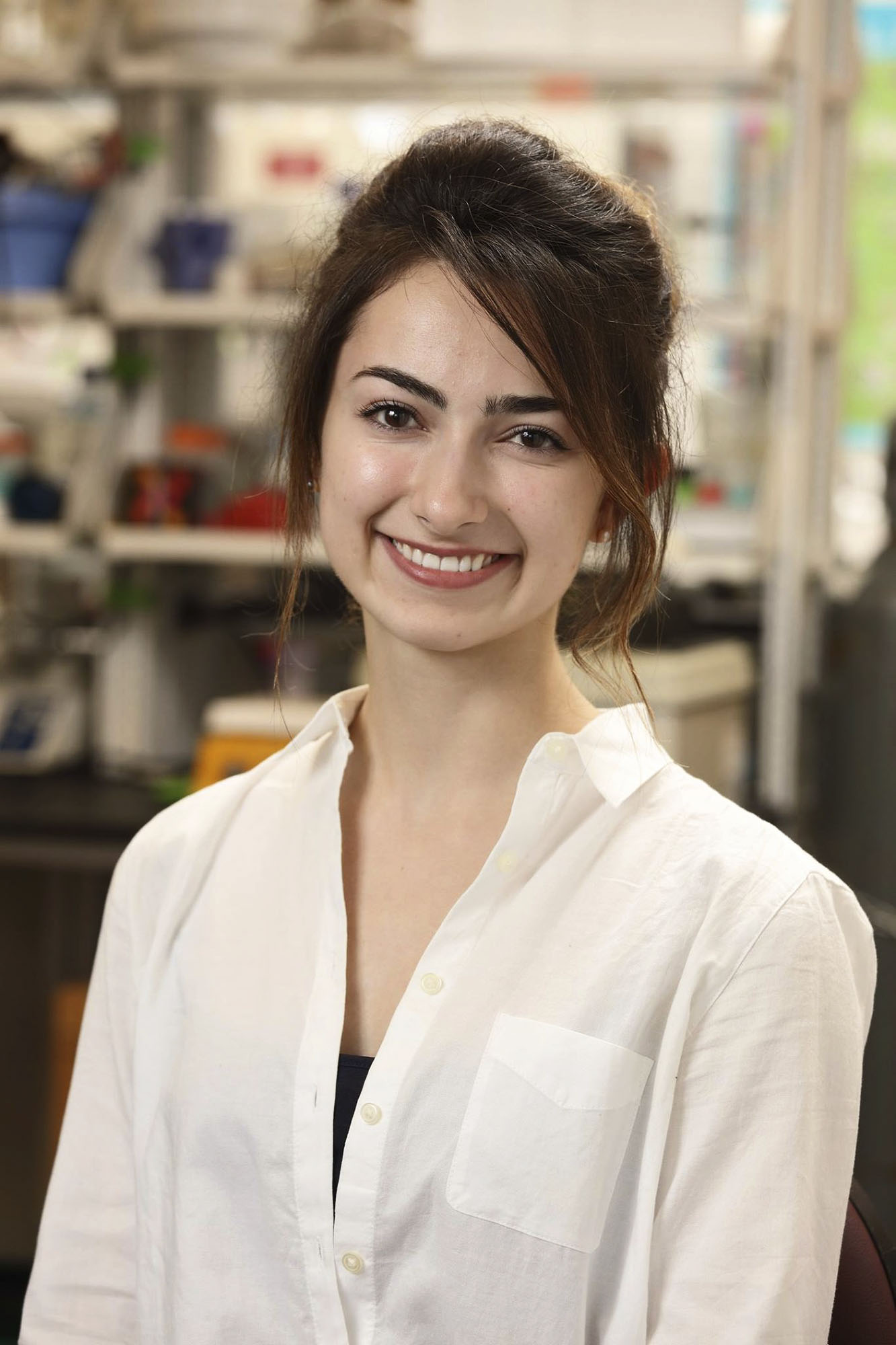
Natasha Sheybani, who received her Ph.D. from UVA this year, earned high praise from her mentor, biomedical engineering professor Richard Price. (Contributed photo)
In nominating his then-student for the award, Price called Sheybani “a transformative presence” in his lab.
“Through both coursework and collaborations with colleagues in the UVA Human Immunotherapy Center, Dr. Sheybani has become highly proficient in cancer immunology and has been my ‘go-to’ source for immunology questions for the past two years,” he said.
He noted that Sheybani pioneered the use of an imaging technology, immuno-positron emission tomography, to assess how focused ultrasound enhances drug delivery in brain tumors. Even after the pandemic struck, she worked tirelessly to maintain productivity in her research endeavors. “With regard to publications and productivity, Natasha is the most prolific student I have encountered in my 22 years on the faculty,” Price said.
He also saluted Sheybani for her role mentoring undergraduate students, noting that she led multiple undergraduate teams completing intensive “capstone” projects. “Given her proclivity for mentorship,” Price said, “as she advances into her independent career, she will embrace the opportunity to mentor women engineering and science students to become leaders in the field.”
Originally from Richmond, Sheybani received her Ph.D. this summer from UVA’s Department of Biomedical Engineering, a joint program of UVA’s schools of Medicine and Engineering. Her dissertation examined how focused ultrasound can benefit immunotherapy for solid cancers.
UVA Receives Two Grants to Support Burgeoning Field of Public Interest Technology
Two UVA proposals have received Public Interest Technology University Network Challenge grants to support the new field of public interest technology.
UVA is among 25 colleges and universities in the network, who are seeking to advance the use of technology for the public benefit.
One of the funded proposals, which received $87,500, seeks to create a “Charlottesville Regional Equity Atlas,” using “participatory methods to engage a wide cross-section of community members to help us evaluate and advance” the project, according to the proposal’s abstract. It envisions mentoring high school and college students as part of the project.
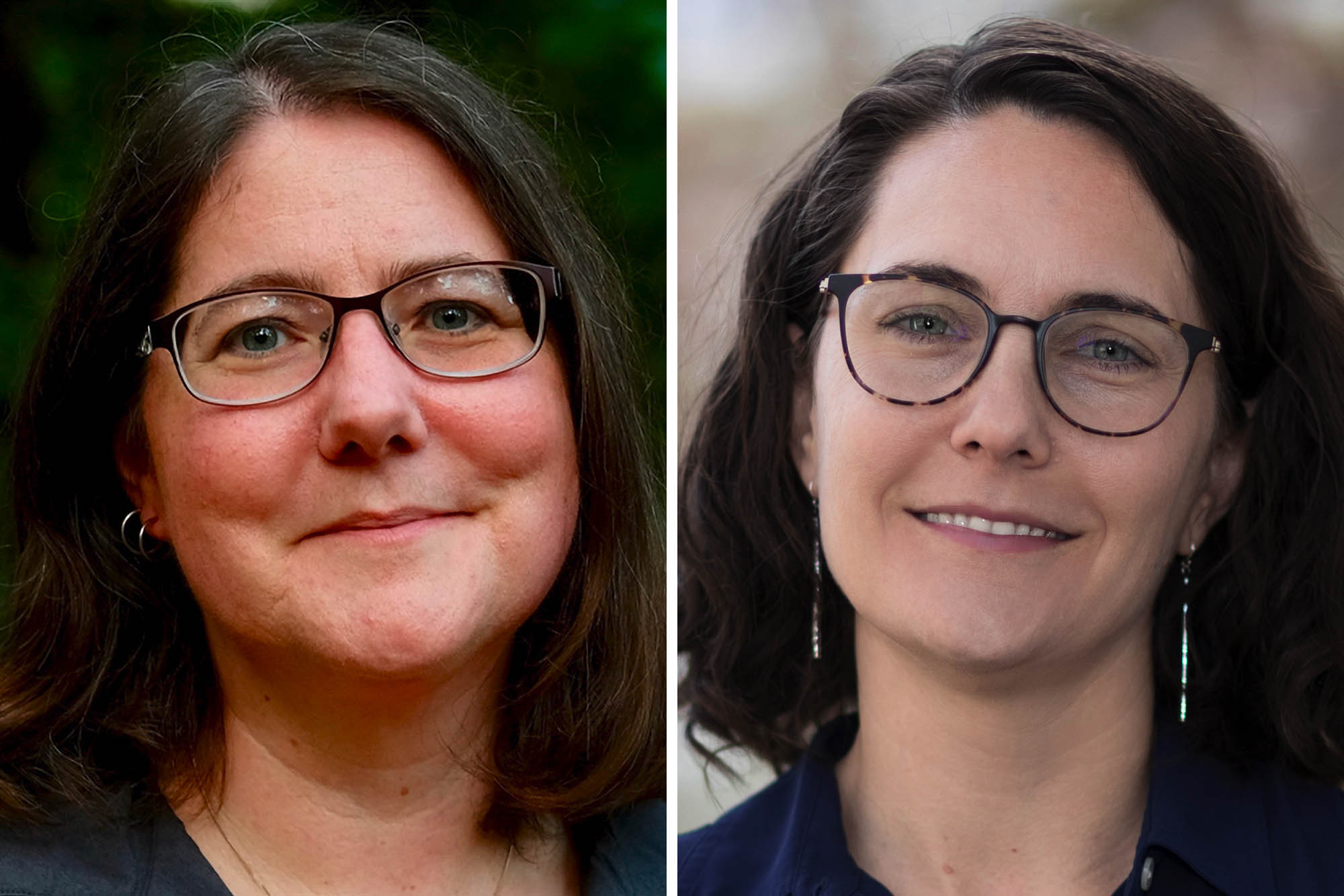
Michele Claibourn, left, and Barbara Brown Wilson are heading up a project to create an equity atlas for the local community. (Left, contributed photo; right, photo by Dan Addison, University Communications)
“An Equity Atlas serves as a data and policy tool for leaders and advocates to advance a more equitable community while helping citizens hold decision-makers accountable, bringing more data to bear in evaluating equity in policy choices and outcomes,” the proposal states.
The co-principal investigators are Michele Claibourn, director of research data services and the social, natural and engineering sciences at the UVA Library; and Barbara Brown Wilson, director of UVA’s new Equity Center and an assistant professor in the School of Architecture. Their collaborators include Nancy Deutsch, a professor in the School of Education and Human Development, director of Youth-Nex and a faculty director of the Equity Center; Bonnie Gordon, associate professor of music and another faculty director of the Equity Center; and Kimalee Dickerson, a post-doctoral scholar in the School of Education and Human Development, who also is affiliated with Youth-Nex and the Equity Center.
The second project, “A Community Fellows Program for Public Interest Technology,” received a $44,430 award.
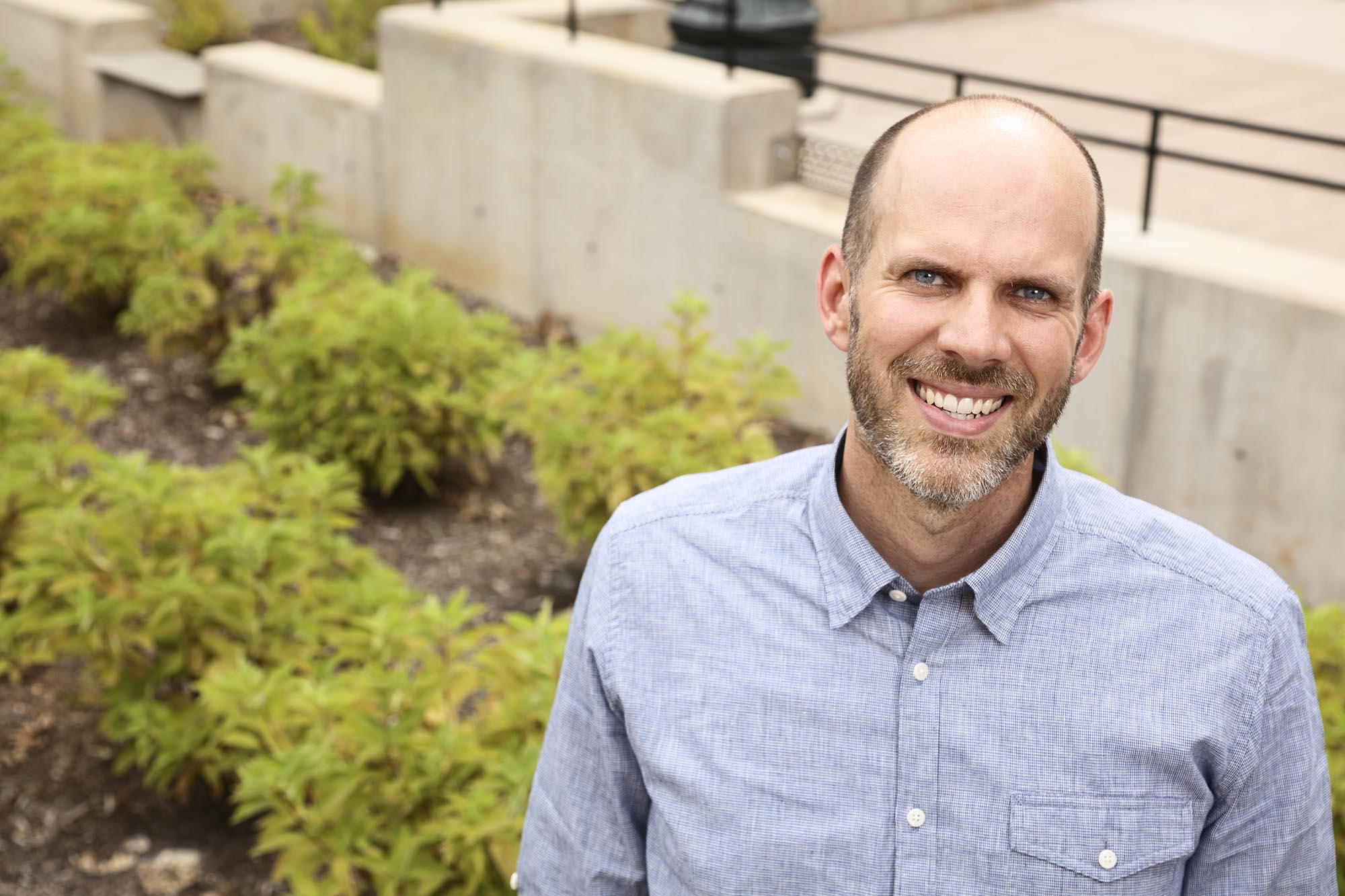
Engineering professor John Goodall is leading an effort to create a Community Fellows Program for Public Interest Technology. (Photo by Tom Cogill)
Led by the Charlottesville-based nonprofit Center for Civic Innovation, the fellows program invites community members to bring their projects and ideas in public interest technology to the center, which then enlists the aid of volunteer mentors, coaches and supporters – many from the University – to advance their proposals.
The grant will allow the program to hire a part-time program director, who will “oversee, grow and formalize” it, while also identifying “best practices, strategies, and a curriculum that other communities can easily adapt.”
The principal investigator is John Goodall, an engineering professor. His collaborators include Lucas Ames, founder of Smart Cville.
Data Scientists Honored for Use of Technology to Review Gut Video, Diagnose Disease
A team of UVA data scientists received an award at a pediatric gastroenterology conference, sponsored by the North American Society for Pediatric Gastroenterology, Hepatology & Nutrition, for its work in automating diagnosis of gastroenterology disease.
They presented their research, “Computer-Aided Detection of Gastrointestinal Anatomy and Pathology via Use of Deep Learning Algorithms for Video Capsule Endoscopy Interpretation,” on Nov. 6 at the conference, held virtually this year.
The project uses computer deep learning to recognize key features of disease by automatically analyzing hours of endoscopy videos taken within the gastro-intestinal tracts of patients, with the ultimate goal of giving real-time diagnostic data in the clinic.
The project was born within UVA’s Gastroenterology Data Science Lab, a collaboration between the labs of Dr. Sana Syed, assistant professor of pediatric gastroenterology, and Donald Brown, W.S. Calcott Professor of Engineering Systems and the Environment. The lab includes a diverse team of medical students, graduate students in engineering and senior research assistants – all with the common goal of using artificial intelligence to better inform diagnostics in gut disease. The lead author of the honored study is Michelle Yeghyayan, a fourth-year medical student in Syed’s lab.
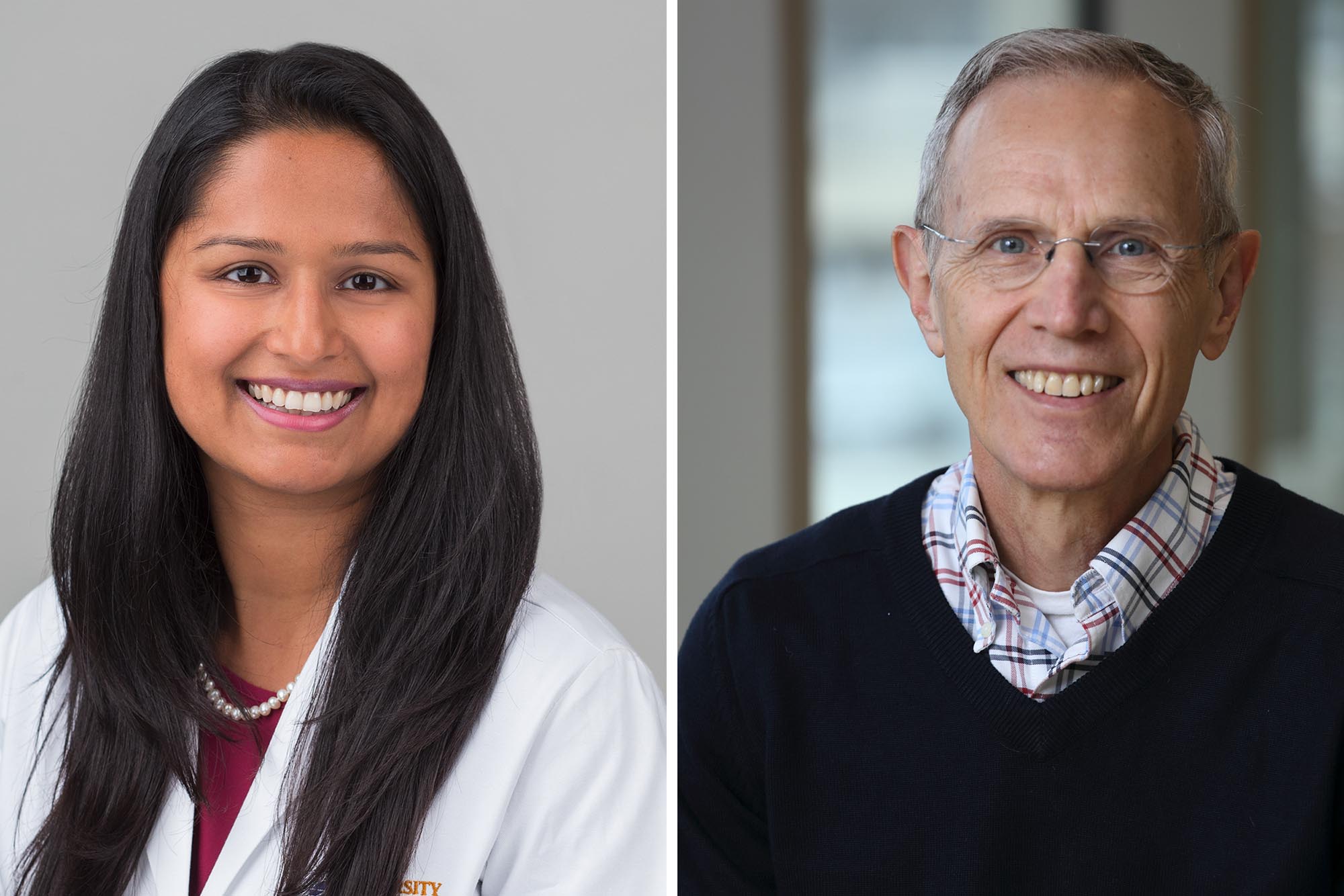
The labs of Dr. Sana Syed, assistant professor of pediatric gastroenterology, left, and Donald Brown, W.S. Calcott Professor of Engineering Systems and the Environment, collaborated on the project. (Left, UVA Health photo; right, photo by Tom Cogill)
Yeghyayan and colleagues have been able to show proof of concept that deep learning can detect key diagnostic features in disease with greater than 95% accuracy. Their future goals include optimizing programming so that this technique can be used quickly in the clinic.
Yeghyayan’s co-authors include Dr. Dylan Hyatt, a former UVA medical student and now a resident in pediatrics at the University of California, San Diego; Dr. Lubaina Ehsan, senior researcher; James Jablonski, a systems engineering Ph.D. student; Sodiq Adewole, a Ph.D. candidate in systems and information engineering; Dr. Andrew Copland of the Gastroenterology and Hepatology Division; and corresponding authors Brown and Syed.
Cancer Center Specialist Named ‘Rural Health Fellow’
The National Rural Health Association has selected Bryan Price, a Danville-based outreach and engagement specialist for the UVA Cancer Center, as one its new 2021 Rural Health Fellows.
After a competitive review process, the association selected 16 fellows to participate in this yearlong, intensive program aimed at developing leaders who can articulate a clear and compelling vision for rural America.
“Once again, this class represents various levels of rural health expertise,” National Rural Health Association CEO Alan Morgan said. “With the successes achieved by the previous classes, we look forward to continuing the tradition of building rural health care leaders through this valuable program.”
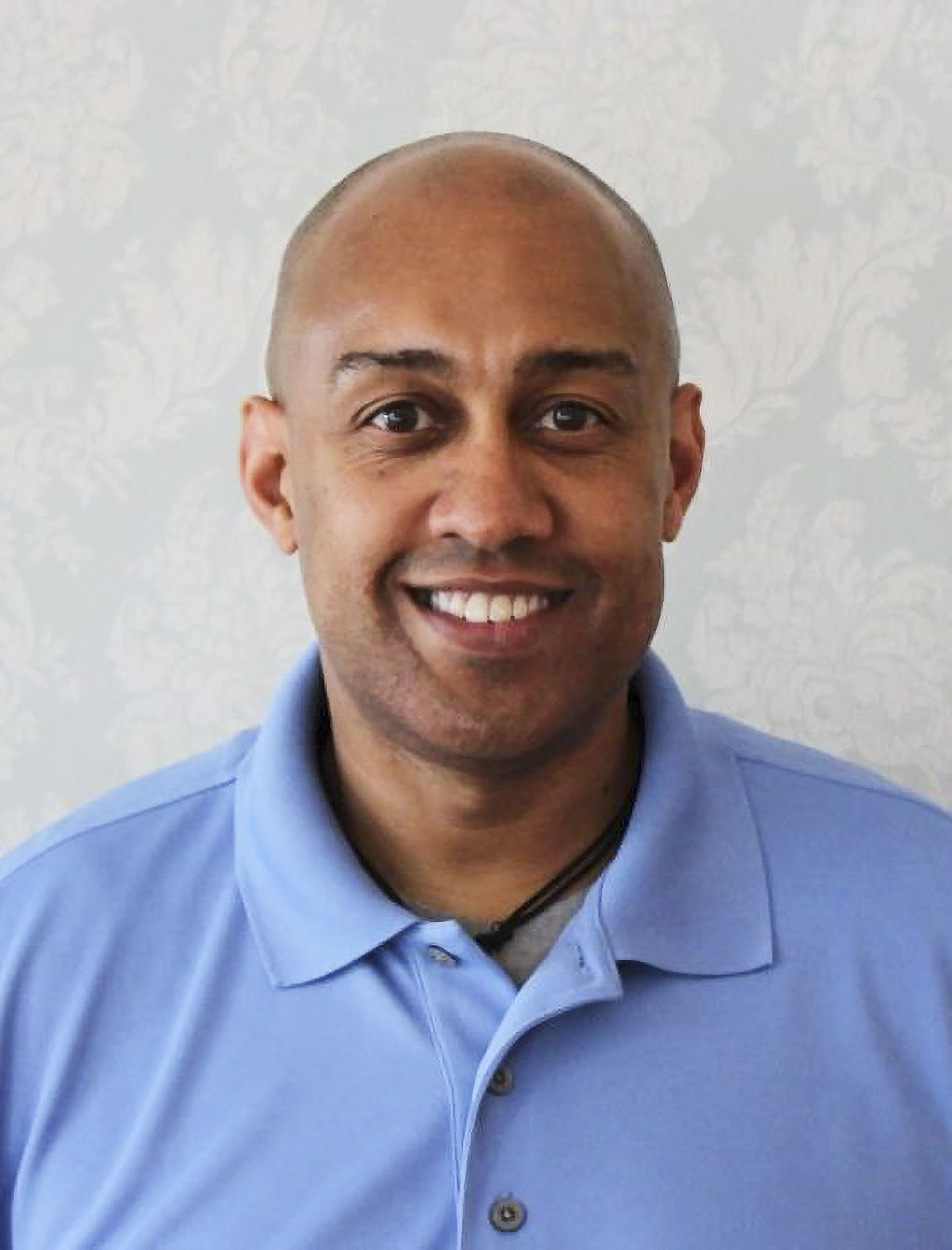
Bryan Price, an outreach and engagement specialist for the UVA Cancer Center, was selected as a 2021 Rural Health Fellows based upon his leadership potential. (Contributed photo)
The Rural Health Fellows meet in person three times throughout the year to undergo intensive leadership and advocacy training. In addition, fellows take part in monthly conference calls to supplement their training, receive updates on legislative and regulatory concerns that impact rural health, and participate in a mentorship program with current members of the association’s Board of Trustees.
The class of Rural Health Fellows will meet in January, Price said, then will break into smaller groups to work on a yearlong policy project.
Price also is the current vice president and incoming 2021 president of the Virginia Rural Health Association.
The National Rural Health Association is a nonprofit organization working to improve the health and well-being of rural Americans and providing leadership on rural health issues through advocacy, communications, education and research. Its membership is made up of more than 21,000 individuals and organizations, all of whom share the common bond of an interest in rural health.
Librarians Collaborate on International Award-Winning Digital Preservation Project
Bradley Daigle and Lauren Work of the UVA Library are key members of the National Digital Stewardship Alliance group that won the Digital Preservation Coalition’s International Council on Archives Award for Collaboration and Cooperation. The award, given at the coalition’s Digital Preservation Awards 2020 ceremony, was announced Nov. 5 to coincide with World Digital Preservation Day.
Daigle, UVA’s digital initiatives librarian and strategic and content expert for APTrust, accepted the award on behalf of the National Digital Stewardship Alliance as the chair of the NDSA Leadership and chair of the NDSA Levels of Digital Preservation Working Group, to whom to the award was given. Work, digital preservation librarian in the library’s Preservation Services Unit, has an integral role in the project as a member of both the Curatorial Subgroup and the newly formed Steering Group for the Levels, whose role it is to provide an ongoing, up-to-date version.
The Levels of Digital Preservation Working Group was recognized for its work on the Levels of Digital Preservation Revision project, which represents an update to the Levels of Digital Preservation that codifies current technological practices for long-term preservation of digital resources in galleries, libraries, archives and museums. The guidelines are presented in an easily digestible format designed for experts as well as newcomers to the field.
As Daigle notes, “The Levels are an extremely easy method for an organization to measure their progress in digital preservation good practice. It points out the key activities that need to occur for an organization to implement their own digital preservation in a progressive manner and map that current landscape of what they can do now to what they want to accomplish.”
The Levels working group comprises more than 200 contributors in six separate groups that span several continents. Daigle initiated the revision process in October 2018 and has managed and guided the ongoing effort since that time. The first set of products were released in 2019, and new additions and additional research components were released at the annual Digital Preservation Conference held Nov. 12.
The Digital Preservation Coalition Awards are given every other year. The International Council on Archives Award for Collaboration and Cooperation is a highly competitive award, with an international panel of experts judging the finalists. The award includes a cash prize of £1,000, which will be donated to the non-profit Council on Library and Information Resources to subsidize travel stipends to attend the NDSA’s annual conference.
Media Contact
Article Information
December 8, 2020
/content/accolades-hip-hop-professor-climbs-charts

